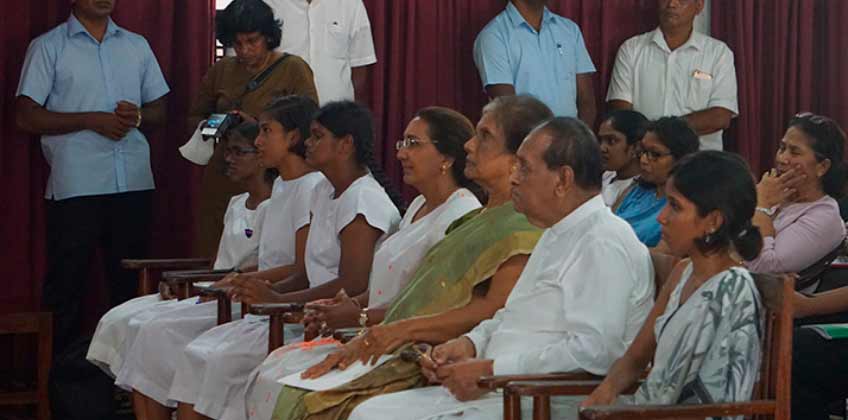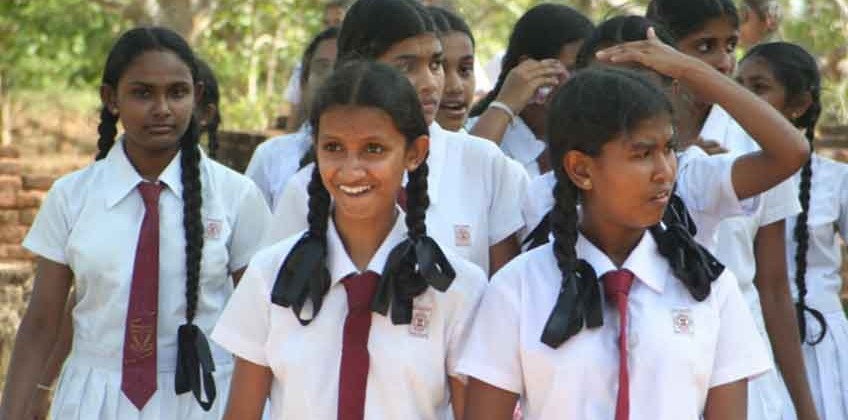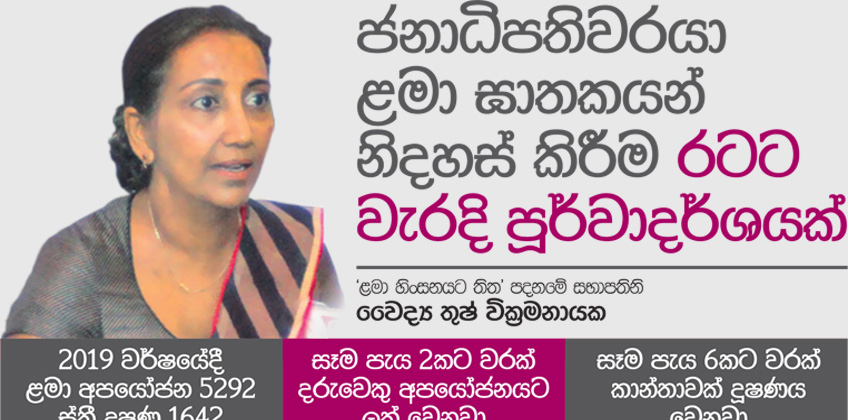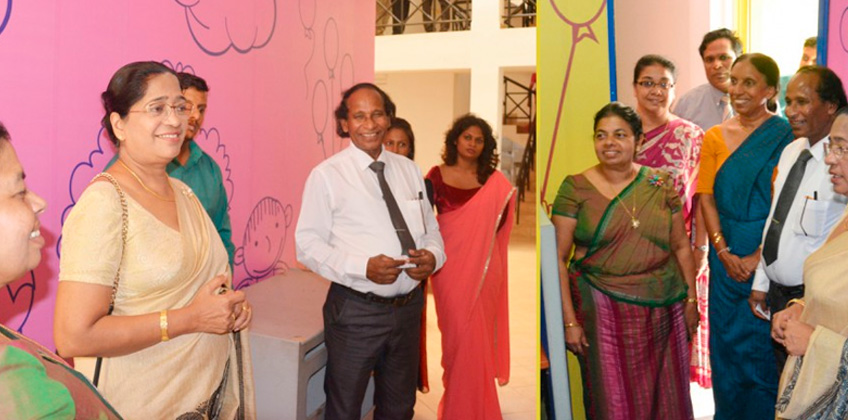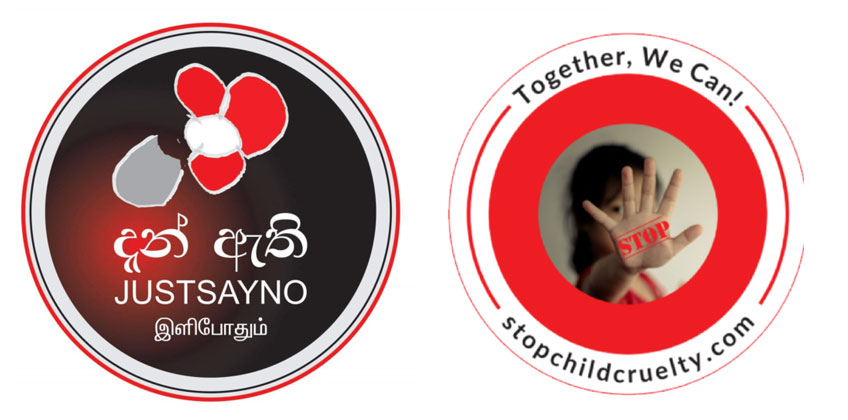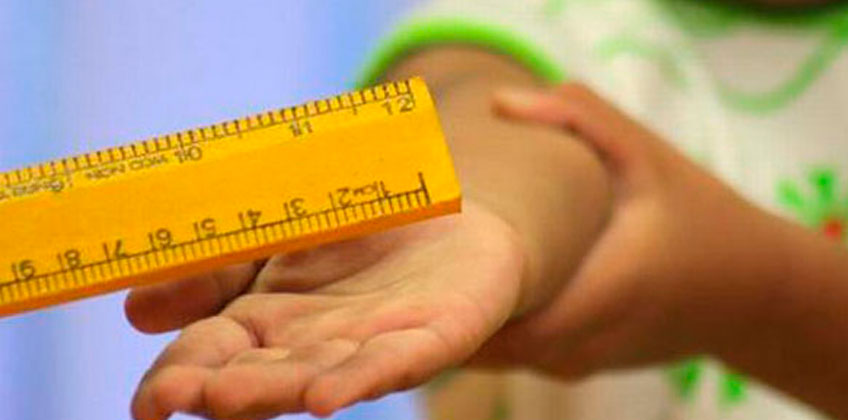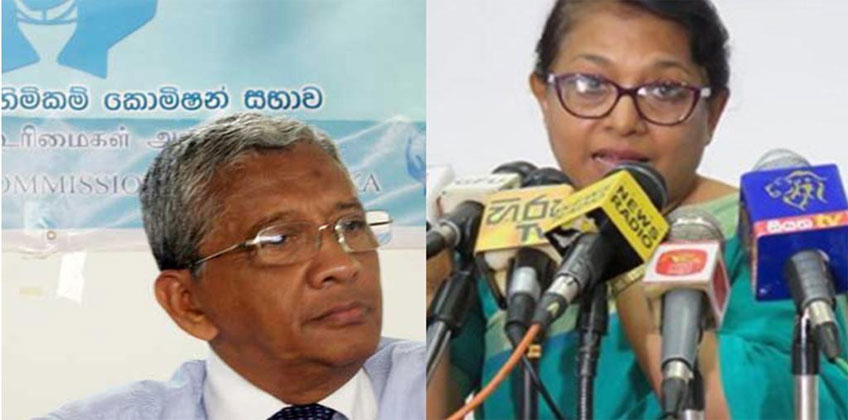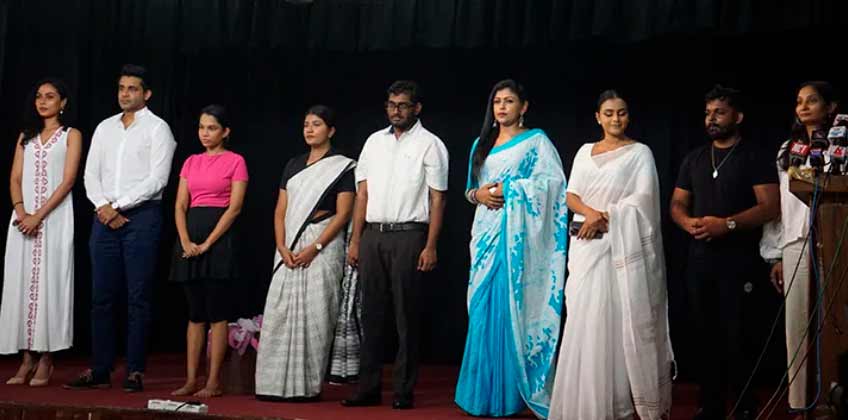
In conversation with Dr. Tush Wickramanayaka of Stop Child Cruelty Trust
Children are one of the most precious things in the world. They are the most tangible symbols of our future. They are beacons of hope and innocence. However, the ugly reality is that so many children around the world are abused. Their innocence is used against them. Their light darkened.
The impacts of child abuse are incredibly far-reaching. It can affect their physical and emotional wellbeing and lead to trauma, mental health issues, impaired social relationships, and hinder cognitive development. In short, the reckless and cruel abuse of a child by an adult or even by other children can significantly affect not only their present quality of life but their whole life trajectory and future.
The Stop Child Cruelty Trust
Children need to be protected and since 2018 the Stop Child Cruelty Trust (SCCT), led by Dr. Tush Wickramanayaka, has embarked on a quest to end violence against children and corporal punishment. Along the way, it has played a vital role in creating the Child Protection Alliance in 2021 – a coalition of reputable organisations advocating for children’s rights.
In 2022, it introduced celebrity Child Protection Ambassadors inspired by UNICEF and represented all 5.2 million of Sri Lanka’s children at the 42nd session of the Universal Periodic Review of the UNHRC, defending their rights. On 1 February, SCCT successfully convinced numerous countries to recommend banning corporal punishment during the Sri Lanka sessions.
SCCT’s latest milestone is ‘Chronicles of Melancholy,’ a historic initiative to safeguard children’s rights in Sri Lanka. The year 2023 saw the island facing a child protection crisis. A total of 17 children have been abused and murdered between 2020 and 2022 without effective action from authorities. The reasons for this are complex, but the underlying message is not. Sri Lankan children need stronger protection.
The Sunday Morning Brunch sat down with SCCT Chairperson and Child Protection Alliance Co-Convener Dr. Tush Wickramanayaka for a chat on what SCC does, child abuse in Sri Lanka, and how they hope to bring awareness to issues with ‘Chronicles of Melancholy’.
‘Chronicles of Melancholy’ is a book that shares true stories of abuse survivors in Sinhala, Tamil, and English to raise awareness about the escalating issue. In April, one story from the book – ‘Stilled Tears – Faded White Garb’ – was released ahead of the launch of the complete book in November this year.
This story is particularly powerful to Dr. Wickramanayaka, because part of why she formed the Stop Child Cruelty Trust in 2018 was because her own daughter had been subject to mental abuse in school. SCCT was established with the hope of ending violence against children in all forms, particularly physical violence and corporal punishment.
Child abuse and the Sri Lankan landscape
Particularly in Sri Lanka (and even globally) the most common form of child abuse is physical abuse. About 1.8 million children around the world are subject to physical abuse each year. In Sri Lanka specifically, the last decade has seen a 30% increase in the physical abuse of children. It is the most common form of abuse reported to both the National Child Protection Authority (NCPA) and to the Sri Lanka Police.
“According to the Grave Crimes Report of the Sri Lanka Police, child abuse collectively (both physical and sexual abuse) is now the second highest grave abuse, second to burglary and theft. The NCPA’s record shows over the last decade, the number of complaints has risen steeply and within that, the most common form of abuse reported is cruelty – cruelty is the legal term for physical abuse as defined by the Penal Code. Reports of cruelty have increased threefold (30%),” Dr Wickramanayaka said, noting that these statistics have been reached by looking at reports made to the Police and to the NCPA as individual departments.
There is no central database that collects this information. However, looking at reports made to both departments, physical abuse has risen by 30% and there is also a clear increment in reports of sexual abuse. Part of this could possibly be because of the successful messaging around reporting child abuse, but at the same time, there is also a backlog of over 20,000 cases of child abuse of both kinds which have been referred to the Attorney General’s Department. The reason for this backlog is mainly discrepancies within the law.
“The kind of abuse reported has also become more heinous and inhumane as opposed to a little slap or knock on the head,” Dr. Wickramanayaka noted. “People seem to be taking out their anger and frustration more on innocent, vulnerable children. From July 2020-July 2022, there have been 17 children who have been physically and/or sexually abused and then murdered (killed purposely after being abused). This is over a period of 24 months in a country without war or famine or a natural disaster (we have had Covid-19 around the world, so it is not a specific excuse).”
Beyond this, there are other factors that enable child abuse in the local context. One is the legal system and the amount of time it takes for cases to be resolved. Criminal cases take up to 10 years to be taken to completion. Over these 10 years, children need to keep reliving their abuse (while their abuser is out on bail); they also grow up and want to start their own lives and this does sometimes lead to cases being dropped.
Even when such cases result in a conviction, sentences are often suspended, which results in the perpetrator returning home. Added to that are national decisions like pardoning those convicted of crimes against children. There is also no mechanism in Sri Lanka akin to that of a child abuse register which publicly records those who have committed crimes against children.
All these things contribute to children’s lives being less valued and crimes against children being viewed laxly. Dr. Wickramanayaka also noted that this attitude sometimes extended to enforcers, citing examples she had come across of Police reacting to reports of sexual abuse from the lens that penetrative abuse is more significant when it comes to sexual abuse or that physical abuse is only credible if the child is visibly wounded. Complainants are also often treated as troublemakers and can often be treated without the compassion that is due to a victim of abuse.
Fighting the good fight
SCCT is devoted to fighting child abuse in all its forms. Its focus is to End Corporal Punishment in Sri Lanka (ECP2020). The national campaign was launched in September 2018 and the Pentagon Proposal is the blueprint of a multi-pronged action plan to do so.
More than 250 research studies show associations between corporal punishment and a wide range of negative effects and adverse psychological outcomes on the victims. No studies to date have found evidence of any benefits. Sri Lanka ratified the United Nations Convention on the Rights of the Child (UNCRC) in 1992.
However, despite the many pledges made by successive governments – a plethora of proposals, the National Action Plan for the Protection and Promotion of Human Rights 2011-2016 pledging a ban on corporal punishment, circulars by the Ministry of Education in July 2005 and December 2016 – corporal punishment is rampant in schools. Most significantly, the National Human Rights Action Plan 2017-2022 and the National Plan of Action for Children in Sri Lanka 2016-2020 do not address corporal punishment.
The Pentagon Proposal includes institutionalising a total ban on corporal punishment, implementing the National Child Protection Policy, regulating international schools, and appointing Child Protection Officers in each school. To achieve this, necessary legislative changes will be made and relevant circulars will be circulated to schools.
The focus is on creating awareness among parents, principals, and teachers through specially designed material. Training on child protection and alternative disciplinary methods will be provided to principals and teachers. Responsible members the SCCT has engaged in aid of this proposal and achieving this vision include the President, Minister of Justice, Minister of Children’s Affairs, and Minister of Education.
On an advocacy level, SCCT also takes on cases, defending children against abuse. It is currently defending Sri Lanka’s biggest case of child abuse in a State institution – the grievous sexual harm (Sri Lanka doesn’t recognise rape against males) of 10 boys in a care home in the south run by the Probation Department. The abuser was their carer, a Probation Officer within the department.
SCCT has also recently launched ‘Happier and Safer Education – No Hit Zone Schools,’ an initiative that sets up one beacon school per district as a violence-free school.
Dr. Wickramanayaka herself is also Co-Convenor of the Child Protection Alliance, a collective of credible organisations in Sri Lanka committed to safeguarding children’s rights. It aims to raise public awareness, address physical abuse, promote judicial reforms, educate on sexual abuse, and improve children’s mental health. The alliance’s primary goal is to urge Parliament to pass a bill implementing judicial reforms and an unequivocal prohibition of corporal punishment to combat the escalating child protection crisis in the country.
‘Chronicles of Melancholy’
‘Chronicles of Melancholy,’ SCCT’s newest initiative (years in the making but delayed because of the pandemic), is a powerful book that aims to end child abuse in Sri Lanka. It shares untold stories of survivors, highlighting their mental struggles and the lack of support child victims often receive.
Dr. Wickramanayaka shared that she hoped for ‘Chronicles of Melancholy’ to serve as a guide to children on protecting themselves and their friends, to teachers on the impact that they can have on children through their actions, and to parents on how to deal with their children being abused.
The first chapter ‘Stilled Tears – Faded White Garb’ was released in April and tells the tragic story of 16-year-old Varuni, who was subjected to unimaginable mental and verbal abuse by her school principal, which eventually led her to end her own life. Her story is narrated by her mother.
“We wanted to write about the real-life untold stories of survivors and how their abuse has affected them and their mental state,” Dr. Wickramanayaka said, noting that the mental health aspect of child abuse was often completely ignored in Sri Lanka; no State institution followed up with child victims on how they were doing, no support from child psychologists was provided, and, in her experience, complainants were often considered (and treated as) troublemakers, especially if they found their own representation for legal proceedings.
“There is no cohesive way of working for the benefit of the child and their family is also isolated. How this abuse affects them later on in life and the ripple effect it has on adult life is just not something we think of. Even higher members of the Judiciary, when they give dates every six months, don’t think about how it will affect these children later on,” Dr. Wickramanayaka observed.
‘Chronicles of Melancholy’ hopes to build this awareness; to highlight the complexity of a child being a victim and to empower not just children themselves but to also provide a tool for adults in how to respond, how to take action, and what comes next. “We want children to read it, for children to understand it and feel empowered. We want it to go to the hands of children so they can understand how they can protect themselves and their friends, how to react to classroom abuse, and what to do if they know something is happening to one of their friends,” Dr. Wickramanayaka said.
In the bigger picture, Dr. Wickramanayaka shared that the Ministry of Education was likely to approve this to make it available to all schools and libraries. In this way, she hopes the book will also raise awareness among teachers. “The way the country is going now, we’re so distanced from children that teachers have become primary carers. Teachers have a huge responsibility and the book is focused on children as well as teachers to serve as an eye-opener and understand that sometimes even the simplest of acts they’re doing in good faith can be harmful.”
Ultimately, the book raises awareness among adults, empowers children, and guides them on protecting themselves and their friends. The April launch of its first chapter was also the launch of ‘Me Unhurt – Stop Child Abuse’ – an art competition that calls on children from ages 12-18 to submit art that deals with the theme of stopping child abuse. The winning entry will be featured on the cover of ‘Chronicles of Melancholy’ and a selected number of entries will be used in the illustration of the book.


